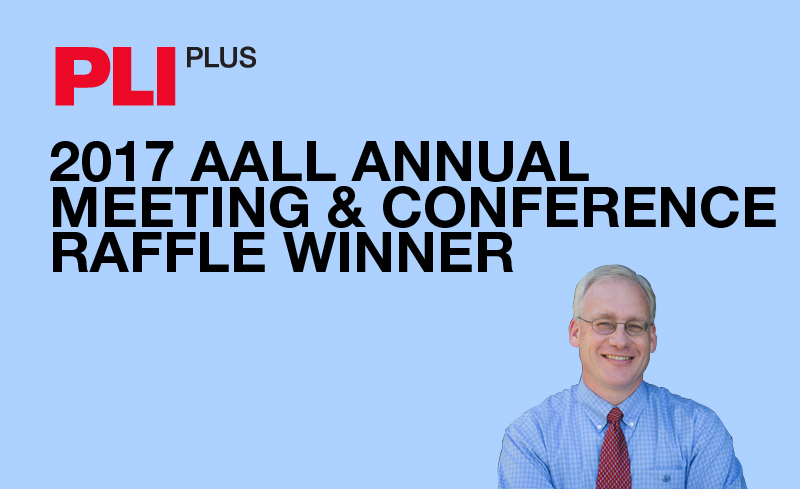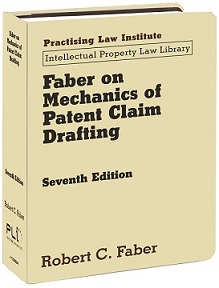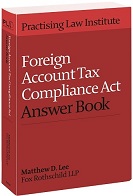 At the AALL Annual Meeting & Conference in Austin this year, PLI raffled off a $1,000 AmericanExpress gift card. James Wirrell, Assistant Dean for Library Sciences at McGeorge School of Law at University of the Pacific, was our lucky winner. Check out our interview with James below!
At the AALL Annual Meeting & Conference in Austin this year, PLI raffled off a $1,000 AmericanExpress gift card. James Wirrell, Assistant Dean for Library Sciences at McGeorge School of Law at University of the Pacific, was our lucky winner. Check out our interview with James below!
Tell me a little about yourself. Why did you become a librarian?
I am originally from the Vancouver area in Canada and attended law school there. After meeting an American (who I am now married to), I did my third year as a visiting student at Hastings in San Francisco. As an international student, the only place I could work at Hastings was in the library. While working in the library and interacting with the law librarians, I decided that this was the career for me. After Hastings, I attended both library school and law school again at the University of Illinois. I am now a citizen of both the US and Canada and have worked in law libraries at the University of Illinois, the University of Richmond and the University of the Pacific, McGeorge School of Law.
What do you like most about your job at University of the Pacific, McGeorge School of Law?
As the director of the law library, I enjoy working with everyone on my staff to provide the best possible service to the law school in as efficient a manner as possible. Budgets are an issue for us, and I like to be able to give our school and its students good value for the money. I enjoy working with people and with making a positive contribution in this world.
What is the most common research question you receive?
Our research questions are becoming increasingly complex and involve multi-faceted research projects. Typically, the research questions we now face are ones that the users were not able to solve for themselves using the basic search tools in the common electronic databases. As such, the questions we now get require us to go outside of the usual channels to find the answers.
Which PLI publication do you most frequently recommend to students?
One of our leading professors has an interest in alternative dispute resolution. Accordingly, we have referred students to American Arbitration: Principles and Practice.
What did you think of AALL 2017? Did you do any sightseeing in Austin?
I always enjoy the networking at AALL with both fellow law librarians, but also with vendors. This year I was particularly excited by the pre-conference workshop I attended on the new academic law library data collection platform, ALLStAR. My wife accompanied me and we did some walking around the city and took in some art galleries and the Texas state capitol. She also came to see the AALL Exhibit Hall once and was given a red PLI bag which she decided was the very best swag given out at the conference. We also were able to spend a couple of nights after the conference visiting some friends who live in greater Austin.
How do you plan on using your AmEx gift card?
Good question! I haven’t thought too much about it. I tend to be more of a saver than a spender. I think I will earmark the value and use it down the road to be a bit more adventurous with new technology and mobile phone upgrades.
Thank you, James! And congratulations!
 At the AALL Annual Meeting & Conference in Austin this year, PLI raffled off a $1,000 AmericanExpress gift card. James Wirrell, Assistant Dean for Library Sciences at McGeorge School of Law at University of the Pacific, was our lucky winner. Check out our interview with James below!
At the AALL Annual Meeting & Conference in Austin this year, PLI raffled off a $1,000 AmericanExpress gift card. James Wirrell, Assistant Dean for Library Sciences at McGeorge School of Law at University of the Pacific, was our lucky winner. Check out our interview with James below! “This work must be included in the library of anyone who considers himself or herself an attorney [in the field].” – The Licensing Journal
“This work must be included in the library of anyone who considers himself or herself an attorney [in the field].” – The Licensing Journal Foreign Account Tax Compliance Act Answer Book (2017 Edition)
Foreign Account Tax Compliance Act Answer Book (2017 Edition)